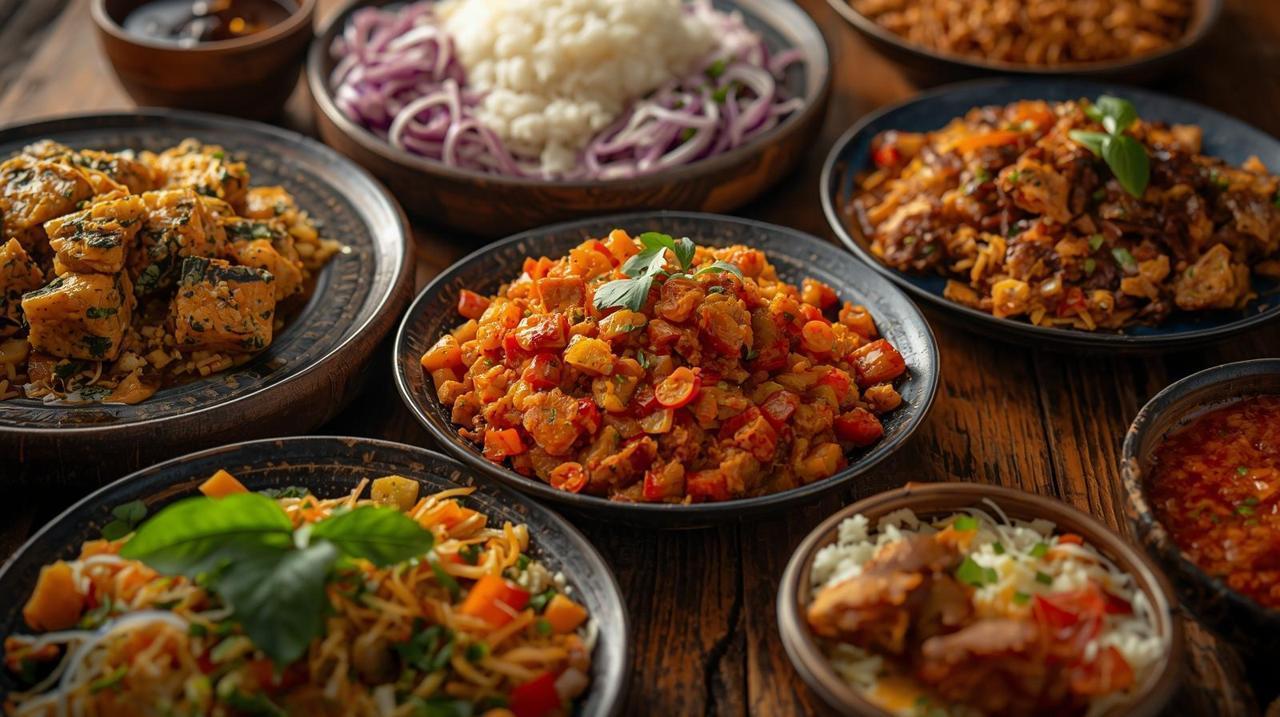
Post by : Samir Qureshi
Formal, multi-course fine dining with its elaborate service and theatrical plating is giving ground to a simpler, region-focused approach. Chefs are stepping away from the pursuit of stars and instead spotlighting local produce, traditional techniques and the stories behind dishes.
The trend centres on one idea: genuine flavour and cultural connection now define culinary prestige.
From Abu Dhabi and Dubai to other global food capitals, cooks are reconnecting with regional repertoires—reworking street, home and market foods into restaurants that preserve origin and context. Rather than copying Western fine dining templates, they mine ancestral recipes, local crops and age-old methods for inspiration.
In the UAE, chefs are updating Emirati staples such as machboos and harees, while Indian chefs elevate distinct regional traditions like Goan, Chettinad and Kumaoni fare for wider audiences.
That return to roots is intentional, not merely nostalgic.
Several practical and cultural forces are pushing kitchens toward regional cooking:
High-end dining can feel removed; guests may admire technique more than relate to the food. Regional plates offer emotional ties to memory, place and identity, giving chefs a clearer cultural purpose.
Importing rare ingredients is costly and environmentally heavy. Focusing on seasonal, local supply chains helps chefs reduce waste, support local farmers and lower their carbon footprint.
The field-to-fork approach has become central to many kitchens' operations.
After the pandemic, diners gravitated toward comfort and familiarity. The pressures on fine dining—closures, staffing and costs—encouraged chefs to offer food that feels honest and reassuring rather than purely ornamental.
Rather than modelling restaurants on Western luxury norms, chefs are foregrounding their own heritage. Cuisines from the Middle East, Africa and South and Southeast Asia are being reframed as refined and sophisticated on their own terms.
"Authentic" is no longer read as a fixed standard. Chefs are blending respect for technique and provenance with sensible innovation—keeping the spirit and context intact while adapting for contemporary diners.
"Authenticity should acknowledge history while being relevant to today’s table," said one chef.
Dubai: Kitchens such as Orfali Bros and BOCA balance modern methods with rooted Middle Eastern flavours.
India: Street and regional specialties are being presented with restaurant polish without losing provenance.
Lebanon & Jordan: Local olive oils, grains and spice blends are central to renewed interest in Levantine traditions.
The change is evolutionary: fine dining continues, but its values are shifting toward narrative, locality and honest taste.
By prioritising heritage, seasonality and community, chefs across the GCC are building a cuisine that feels both contemporary and rooted—food that connects diners to place, people and history.










Iran Strikes UAE 167 Missiles 541 Drones Hit Dubai
Iran launches large-scale missile and drone assault on UAE forcing airport shutdowns and triggering

UAE Rejects Sudan Conflict Allegations at UN Human Rights Council
Emirati diplomat issues Right of Reply in Geneva dismissing accusations and urging accountability fo

NCM issues fog and low visibility warning in UAE
National Centre of Meteorology warns of fog and reduced visibility in coastal and internal areas, ur

UAE expresses full solidarity with Kuwait over maritime rights
UAE expresses full solidarity with Kuwait and urges Iraq to resolve maritime concerns through intern

Dubai Parks to Offer Free Medical Tests During Ramadan
Free health screening buses will provide eye, blood pressure and glucose tests across major Dubai pa

T20 World Cup India Prepare to Crack Spin Test in Super Eight
Bowling coach Morne Morkel confident Indian batters will regain rhythm against spinners as Super Eig